- Home
- Dornford Yates
Safe Custody and Laughing Bacchante Page 2
Safe Custody and Laughing Bacchante Read online
Page 2
All the world seemed to be travelling, and our train was so full that we could not discuss our adventure without being overheard, I, therefore, stared out of window and wished for the coast, for I could think of nothing but Hohenems and the secret which was so precious in so many eyes.
It was while we were crossing the Channel, leaning upon the ship’s rail and making the most of the privacy of the breeze, that Hubert proposed to take Stiven into our confidence.
“You see,” he said, “it’s like this. It’s as well to be forewarned when you’re going into the blue. On the face of it, we’re going to visit the castle which now is ours—to take possession, as any legatee would. In fact we’ve another object, but, as long as we can, I suggest we should keep that quiet. Nobody knows that we even know there’s a secret, and I’ve taken good care to leave that letter behind. Very well. Now the House of Haydn—whoever or whatever that means—and Harris are out to steal our cake. We shall resist them, of course: but we shall resist them far better if, while they think we know nothing, in fact we all know very well what their motives are. I say ‘all,’ because I mean ‘all.’ So long as your enemy thinks that you know nothing, your eyes and ears may be extremely useful. And there’s nothing the matter with Stiven’s eyes and ears.”
“I’m perfectly happy,” said I. “I only hope he knows more German than I.”
“Ah,” said Hubert ruefully, “that’s where we come unstuck. Still, I don’t suppose foreign tongues are Harris’ strong point, and as soon as we’ve had a look round we must try and get hold of some fellow to teach us to talk.”
“That’ll take us years,” said I.
“Months,” said Hubert. “But what of that? We’re not going to find out this secret in seven days.”
With that he knocked out his pipe, and we went to lunch.
We left Paris that night in a comfortable sleeping-compartment, which, when its doors were shut, made as private a closet as ever was built in a house. Such was the roar of the train that nobody listening without could have heard what was said, so when Stiven came for orders before he retired, my cousin bade him come in and told him the truth.
He heard Hubert out in silence. Then, without any comment, he asked what Harris was like.
“Harris,” said I, “is a man of about forty-five. He’s tall and thin and clean-shaven, with sandy hair, with a curious, sneering expression, and very big hands.”
“Might he be on this train, sir?”
“I hardly think so,” said Hubert. “Why d’you ask?”
“There was someone on the platform at Paris, sir, watching you very close. I couldn’t see him too well, but he wasn’t tall. I didn’t give it a thought: but now you’ve told me this, sir, he may have been on the job.”
“He may,” said Hubert. “I don’t think it very likely. Harris won’t work alone, of course. But I can hardly believe that he’d get off the mark so soon. And now you go and turn in. You’ll have to get up at the frontier to see the big baggage through. That’ll be about three in the morning. And when you do, you might look out for your friend. If you want us, you know where we are. But if you don’t, sleep well and get your breakfast and be here at eight o’clock.”
With that, we bade him good night, and Stiven withdrew.
His suspicion of the stranger at Paris was very much to my taste and spiced our journey for me as nothing else could have done: but Hubert frowned on my excitement and began to deplore the fact that when we got out of the train we should know no more what to expect than the man in the moon.
This, of course, was true.
We knew that Hohenems existed and that Mittal was the name of the station at which we ought to alight—this, because it was printed at the head of the notepaper Nicolas Ferrers had used. And that was the sum of our knowledge. Of the size of the estate, its approach, its appearance and condition, how far it lay from Mittal, how many servants were there, of our great-uncle’s orders and habits and way of life we had not the faintest idea. Upon all these matters, however, it seemed much more than likely that Harris was well-informed, so that if indeed he was moving, he would have us at a grave disadvantage until we could grow familiar with our inheritance.
“All the same,” said Hubert, “possession’s nine points of the law—and often ten. He may know Hohenems backwards, but we’ve the right to turn the key in the door. But I hope he doesn’t monkey with the servants: they’re bound to be a bit restive at the thought of a new regime.”
Here the attendant arrived, to make our beds, and the last thing I remember that night was the rude, insistent rhythm of the wheels of the sleeping-car.
We were awakened at the frontier, where Customs Officers entered and opened one of our bags, but, though I half expected to see him, Stiven did not knock on the door until eight o’clock.
And then he had nothing to report.
It was past midday before we came to Salzburg. There we left our train and changed to that which should bring us to Mittal that evening by half past five.
I need hardly say that our eyes were now wide open and ready to mark anyone who was looking at us: but though the station was busy, nobody there aroused even my suspicion—and I was ready to believe every porter in Harris’ pay.
In the course of the next four hours we ran through some lovely country, as rich and sweet and varied as ever I saw. Forests, like seas, swelled up the flanks of mountains and flowed about white and red castles, like those of the fairy tales: green meadows, like those of England, were neighboured by oaks and poplars and threaded by placid streams, while the grey of the farms that kept them peered between limes and chestnuts to argue the simple existence of bygone days: valley and glade and falling water, high moor and smiling plain—there was nothing that was not attractive in all we saw: and I could not help feeling that if this was to be our portion we were indeed more lucky than I had dreamed.
Then at last we ran into Mittal—a little wisp of a village, whose only street was scarcely as long as our train.
As this slowed down, I noticed a man on the platform who had plainly come to Mittal to meet some passenger. He was dressed in a plain blue suit and was wearing a chauffeur’s cap: what was more, he was plainly English, and his cheerful, birdlike air contrasted sharply with that of the burly porters that stood at his heels.
“We’re home,” said Hubert, clapping me on the back. “I never hoped for such luck, but I’ll lay a fiver he’s here to meet you and me.”
And so he was.
As we left the corridor-carriage he met us at the foot of the steps.
“Mr. Ferrers, sir?” he inquired, with a hand to his hat.
“That’s right,” said I. “And this is Mr. Constable.”
“Pleased to see you, sir. My name’s Bugle. I’m the chauffeur at Hohenems.” He turned to the porters. “Here, you two. Get hold of the gentlemen’s stuff.”
I could have put my arms round his jolly neck.
We were over the jump which might have been so awkward—and that with no more effort than if the worthy Bugle had known us-for twenty years. Apart from this, I liked the look of the man. He was a sprightly fellow and had, I judged, been a groom. He was broad and well-developed, though something short: his air was gay and he had an engaging smile, and though his features were rugged, I liked him no less for that. Whether the other servants were English or no, Bugle was English and Bugle was now our man.
As Stiven came up—
“This is my servant,” said Hubert. “Have you brought a closed car?”
“I’m afraid I haven’t, sir. The closed car’s away for repairs. But I thought perhaps you’d leave your big baggage here and then, when I’ve taken you home, I’ll come back with the van.”
“I suppose there’s a cloakroom.”
“I really don’t know, sir. The best way is not to claim it. They’ll keep it safe till someone produces the check.”
“So they will,” said Hubert.
So Stiven put the slip in his pocket and we made
our way to the car.
“I suppose you know nothing,” said I, “beyond what the telegram said.”
“Not a word, sir,” said Bugle. “It come as a bit of a shock. But, of course, he was very old, sir: and whenever I took him to the station I always used to wonder if ever I’d see him again.”
Then he turned to hustle the porters, and we got into the car. This was of German make, very sturdily built and something the worse for wear, and it had the look of a car which is kept to be used when errands have to be done.
Though he used no German, Bugle was one of those men whose brisk and lively demeanour speaks for itself. The porters fell over themselves to do his will, and within two minutes all our smaller baggage had been bestowed, Stiven was seated by Bugle and the latter had tipped the porters and let in the clutch.
“How far is Hohenems?” said Hubert.
“Twenty-two miles, sir,” said Bugle. “But it’s a handsome run.”
The moment we ran out of Mittal, we seemed to plunge into the country which we had so much admired. Of this the most striking feature was the fewness of habitations of any kind. The farms were lonely and their holdings must have been broad: here and there an inn or a cottage stood like some verderer’s lodge, and fourteen miles went by before we ran through a village, white-walled and clean and lit by the setting sun. Of great houses we saw none at all, but I afterwards found that the more important mansions stood almost always three or four miles from the road and, unless they were built upon some eminence, could not be seen. The traffic we met was unbelievably light, and for most of the way we seemed to have the roads to ourselves.
We had gone some eighteen miles and were storming up a steep hill in the heart of a wood, when we swung round a sudden bend to see a man lying prone in the midst of the way.
He was rudely dressed as a peasant and might have been crossing the road towards a ruinous cottage that stood back among the trees.
Bugle applied his brakes and brought the car at once to the side of the way: but Stiven was out before him and had run to the fallen man.
By the time that Hubert and I were out of the car Stiven and Bugle had turned him on to his face, but though the fellow was breathing, he made no sound. His body was slack, but I saw that his teeth were clenched and a smother of foam was blowing about his lips.
“Looks like a fit, sir,” said Bugle. “I expect that’s his cottage there. Shall we carry him in?”
“We can’t do less,” said Hubert.
He and I crossed to the cottage and knocked on the crazy door, but, since there was no answer, Hubert pushed this open and held it wide.
The place was dark, for the day was almost spent and the trees all about were preventing what light there was, but I made out a cheerless kitchen with all one wall a fireplace in which the ashes were cold.
Then I stood aside, and Stiven and Bugle carried their burden in.
As they laid the man down on the bricks with which the kitchen was floored—
“The flask,” said Hubert to me. “It’s in the dispatch-case.”
I hastened back to the car and found the flask. Then I ran back to the cottage, whose door had swung to. I pushed it open and entered. As I did so, something hit me on the back of my head and I crumpled and fell down senseless with the flask in my hand.
I afterwards found that more than an hour had gone by before I sat up.
The first thing that I remember was feeling uncommon cold, and I know that I groped for the rug which Bugle had spread at Mittal about our knees, supposing myself to be in the open car. Then my senses returned with a shock, and I knew I had been hit on the head and had lost my wits. Except that my head was aching and that I felt something dazed, I seemed to be none the worse, and when I put up my hand, I could find no blood.
As I got to my feet, I found that my coat was open, and an instant later I knew that I had been robbed. All my pockets were empty, and the pistol I had carried was gone.
This sudden, sinister discovery put all else out of my mind, and I must have stood still a full minute, before I remembered that Hubert and Stiven and Bugle had yet to be found.
Without the moon was shining, and, thinking to lighten the room, I turned to the door: with the first step I took, however, I trod on a box of matches, and a moment later I had the light I desired.
Hubert was lying face upward three feet from where I stood. His coats were open and I made no doubt that he had been stripped, as I had, of all that he had. Stiven lay prone beyond him, with his head on the hearth. I saw no sign of Bugle, and the peasant was gone.
At first I thought that my companions were dead, but when I found they were breathing, I began to do what I could to bring them round. I loosened their collars and tucked their coats under their heads: then I went out in search of water, for somewhere near at hand I could hear the song of a brook.
I more than half expected that Bugle would be lying outside, but he was not there and I saw no sign of the car. With my head in a whirl, I turned from the road and made my way to the brook which was running behind the cottage beneath the trees.
I had, of course, no vessel in which to carry the water I meant to bring; but I used my hat, as they do in the story-books, and I never would have believed it would serve my purpose so well.
Two minutes later my cousin was sitting up, and Stiven was stirring and blinking and putting a hand to his head.
I returned to Hubert.
“Can you think?” I cried. “Can you think? Can you understand?”
“Not very well,” says Hubert, feeling his coat.
“I have an idea we’ve been done. That peasant . . .”
“That’s right,” said I. “That peasant was the decoy. The others were in this cottage, waiting to lay us out.”
“Harris?” said Hubert, holding his head in his hands.
“I’m rather afraid so. Of course, I may be wrong. They may have been common robbers, with no idea who we are. But if it is Harris—”
“Harris for a monkey,” said Hubert. “They’ve taken the car?”
I nodded.
Hubert sighed.
“And our papers and passports and everything that is ours. Where’s Bugle?”
“He isn’t here,” said I. “I imagine he’s out in the road.”
Stiven was up on his feet with his back to the wall. “Bugle,” he cried. “That’s his name.”
“Sit down,” said Hubert. “You’ll be all right in a minute. You’ve been knocked out.”
“I know, sir,” said Stiven. “I couldn’t remember his name. It was him that done it, sir. He hit me under the jaw.”
We stared at the man in the half light, for I had set a stone to hold open the door.
“You’re dreaming,” said Hubert. “Bugle had come to meet us.”
“I know, sir. But he’s a boxer. Didn’t you notice his ears? I was bending over the peasant, and when I looked up, as you fell, he hit me under the jaw. I saw his smile as he did it, and then I went out.” There was a moment’s silence.
Then—
“My God,” said Hubert quietly, “Bugle was Harris’ man.”
For a moment my brain zigzagged. Then, to my horror, I saw the depth of the pit into which we had fallen, which Harris indeed had dug.
Bugle and the car he was driving had no more to do with Hohenems than the train by which we had come. They had been provided by Harris—to do his will. And this had been done with a vengeance. Not only had we been ‘side-tracked,’ but Harris had obtained our credentials, and he and some other would pose as Hubert and I. Not a soul in Austria knew them or us by sight: with our names, our papers, our luggage, they would enter into our home, and, once they were there . . .
Hubert’s words of the night before came flaming into my mind.
‘Possession’s nine points of the law—and often ten.’
Chapter 2. With Felonious Intent
Once we had seen it, the thing was as clear as day: and since I afterwards learned the whole of the t
ruth, I will not present our conjectures when I can set out the facts.
Stiven was right. We had been watched at Paris, and a wire had been sent to Harris who was already in Carinthia. Two wires were sent from Salzburg—one to Harris which said that we should reach Mittal at half past five, and another, signed ‘Ferrers,’ to Hohenems which said that we should arrive by a later train. As I have shown, we were met by Bugle—one of the gang, and were driven off to the cottage, where Harris himself and another were waiting to lay us out. Having taken all our belongings, they then proceeded to Ringen, the station next before Mittal, where the three of them presently boarded that later train by which the wire to Hohenems said that we should arrive. In response to that wire, my great-uncle’s car was at Mittal to meet the train: and, when they had claimed our big baggage, Harris and his friends were forthwith driven to Hohenems of which the Austrian chauffeur believed them to be the new lords.
No one, I think, can deny that the game had been skilfully played and handsomely won. Not only were they up in our seat, with all that was ours, but we were on our backs in the gutter—homeless, penniless, friendless, in the depths of a foreign land.
“Well, we can’t stay here,” said Hubert. “For one thing, I’m rather hungry, and, for another, I’ve taken a dislike to the place. How far was that inn we passed?”
“A good four miles,” said I, "if we find the way. But what about money?”
My cousin tapped his stomach.
“They missed my belt,” he said. “I’ve got it next to my skin. Fifty golden sovereigns should stand us in stead.”
I sometimes wonder how many wrongs go unrighted, because the injured man has an empty purse. But for Hubert’s old-fashioned precaution, so far from being able to take any sort of action against our foes, we must have begged our way through the Austrian countryside.
Indeed, our plight had seemed so shocking that my cousin’s news was the cordial I most required, and, such is the hold of the mind upon the body, I wholly forgot the cold and the pain in my head and was ready to dance with delight to think that Harris had left us ‘the sinews of war.’

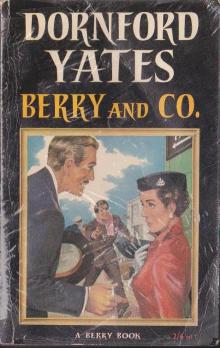 Berry and Co.
Berry and Co.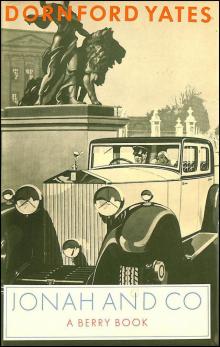 Jonah and Co.
Jonah and Co.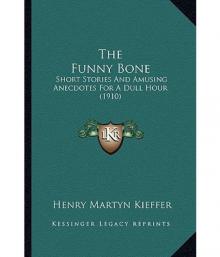 The Funny Bone: Short Stories and Amusing Anecdotes for a Dull Hour
The Funny Bone: Short Stories and Amusing Anecdotes for a Dull Hour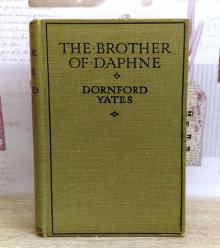 The Brother of Daphne
The Brother of Daphne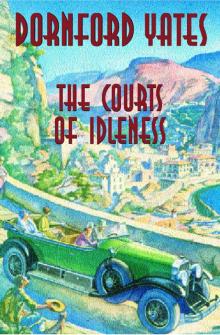 Courts of Idleness
Courts of Idleness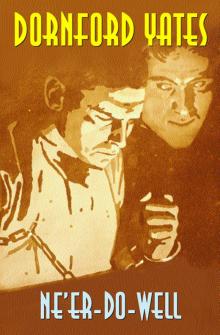 Ne'er Do Well
Ne'er Do Well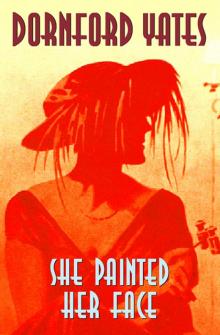 She Painted Her Face
She Painted Her Face Safe Custody and Laughing Bacchante
Safe Custody and Laughing Bacchante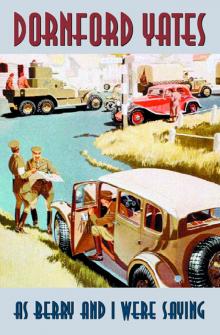 As Berry and I Were Saying
As Berry and I Were Saying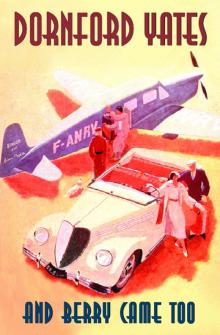 And Berry Came Too
And Berry Came Too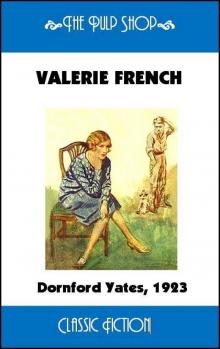 Valerie French (1923)
Valerie French (1923)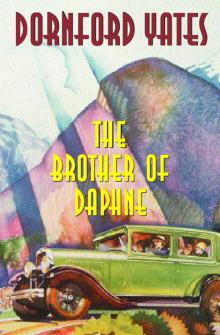 Brother of Daphne
Brother of Daphne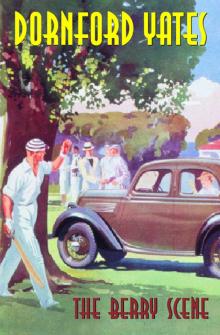 Berry Scene
Berry Scene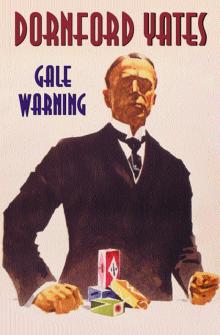 Gale Warning
Gale Warning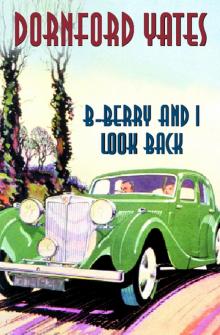 B-Berry and I Look Back
B-Berry and I Look Back Storm Music (1934)
Storm Music (1934)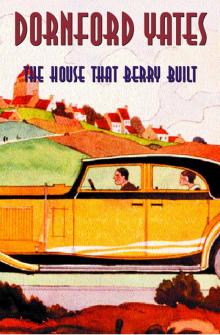 House That Berry Built
House That Berry Built